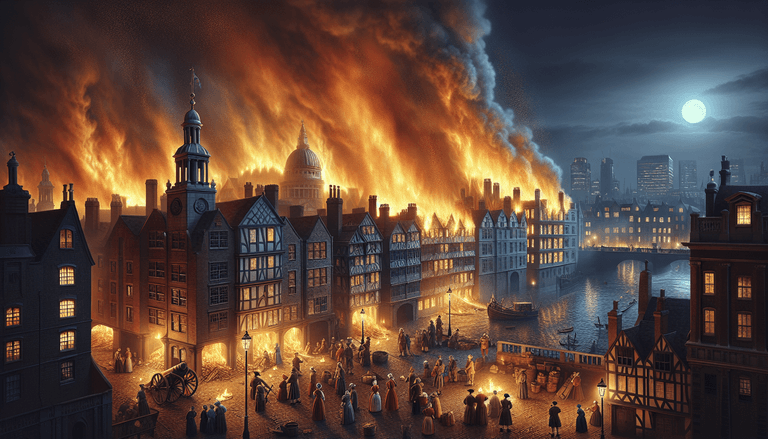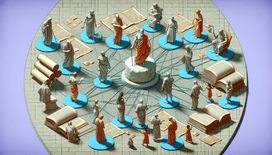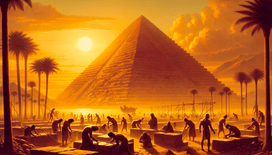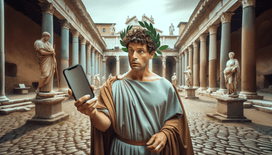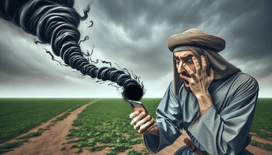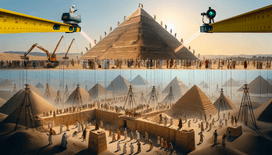The year is 1666, a year celebrated for its splendid symmetry and also, unfortunately, for being the year a little toasty disaster decided to pay London a visit: The Great Fire of London. Picture this: Thomas Farriner’s bakery in Pudding Lane, the unlikely epicentre of the fiery fiesta, decides it fancies a little bit of a roast after hours. The inferno ensues, turning the medieval city into a medieval barbecue. But wait! What if we add a twist (or click) to this historic tale?
Imagine That: Type and Learn
Now, dear reader, let's don our imagination caps and speculate: what if Londoners in 1666 had access to our ubiquitous friend with all the answers, Google Search? Oh, the questions they might have typed into their virtual hourglasses: "My house is on fire, what now?", or "How to bake bread without burning down London?". The blaze might have still kindled curiosity, but Google could have provided the kindling for knowledge that might just have saved some parts of the city from becoming toast.
"Search, and Ye Shall Find...or Fumble"
Picture Samuel Pepys, prolific diarist and gentleman-about-town, smartphone in hand, tip-tapping a search query. Instead of burying his parmesan cheese (yes, really) in the garden, perhaps he’d Google "how to protect valuable cheese from engulfing infernos". Or picture King Charles II anxiously searching "fireproofing coronation robes" during a smoky siesta. Imagine architects like Sir Christopher Wren utilising Google to find alternative designs for buildings that didn't double as giant tinderboxes, rather than modelling churches with enough timber to reconstruct a fleet of ships.
From Embers to Information
Instead of gathering on the rooftops or high hills to merely witness the fiery spectacle, Londoners could gather round their screens - perhaps with a festive tea in hand - to follow #GreatFire1666 trending (historically, setting trends before trending was a trend). Not only could they get real-time updates on which iconic sites were goners, but they’d also be reading informative blog posts on "Top 10 Firefighting Techniques" or get pop-up ads for "medieval fire extinguishers". Handy might be that 1666 group chat titled "Baker's Dozen" where they deliberate: "Should we use water or just panic?" Though I'm here to reckon the latter might be more debated upon.
Searching for Solutions
In all seriousness, had a tool like Google been around, the avenues for not just finding solutions, but consulting encyclopaedic knowledge at the click of a button (or flick of a quill) could have altered events. Information on creating firebreaks, techniques for controlling blaze, architectural know-how for earthquake - and by extension, fire-resistant - buildings, all these could have been in the palm of their slightly soot-underappreciated hands.
Moreover, instead of looking to the skies for divine intervention, they might turn to online forums consulting experts from across the known world, all professing: "Have you tried turning it off and on again?".
Conflagration Cauterized by Curiosity
Though a humdinger of a historic hint, it’s certain that the presence of an omniscient Google Search in 1666 London could have significantly altered the course of the Great Fire. But then again, dear readers, isn’t half the joy of history its burning desire to remind us that we learn from embers of our past? As the saying might now go, "What we search for reflects what we seek to learn".
And so, armoured with curiosity and smouldering with speculative fiction, we reflect not only on how far we've come from manual water chains, but also, in this age of fireproof buildings and dynamic information-sharing, on the importance of curiosity as our most steadfast extinguisher.
